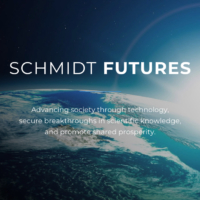 Computer Science (CS) for Social Good White Paper Competition
Computer Science (CS) for Social Good White Paper Competition
The Computing Research Association’s Computing Community Consortium (CCC), in conjunction with Schmidt Futures, sponsored a white paper competition on the future of “CS for Social Good,” in order to harness CS to address societal challenges such as:
- Accelerating the transition to a low-carbon economy;
- Reducing the inter-generational transmission of poverty;
- Feeding 10 billion people while reducing the environmental footprint of agriculture;
- Reducing the time and cost for a low-income worker to gain a skill that is a ticket to the middle class;
- Using data to support evidence-based policy while protecting privacy and security;
- Reducing health care costs while maintaining or improving health outcomes; and
- Improving K-12 student learning outcomes in core academic subjects such as math.
The white papers proposed new directions for research as well as new ideas about public-private partnerships or education (at both the undergraduate and graduate level); they also made the case for resources to support the associated initiatives. One particular area of interest was the role that datasets can play in accelerating applications of AI and machine learning that address key societal challenges. As part of its mission to catalyze the computing research community and enable the pursuit of innovative, high-impact research, CCC will work to operationalize the results of the associated initiatives through potential visioning activities and/or it’s Symposium on Addressing National Priorities and Societal Needs.
See the results of the competition here.
The Call:
The CCC (with support from Schmidt Futures) is pleased to offer a white paper competition on the future of “CS for Social Good.”
As information and communications technologies are becoming more ubiquitous and more powerful, the potential gains from collaboration between computer science and other fields and societal challenges is increasing. However, breakthrough results often occur through deep understanding across fields, as articulated by the late Steve Jobs:
“Creativity is just connecting things. When you ask creative people how they did something, they feel a little guilty because they didn’t really do it, they just saw something. It seemed obvious to them after a while. That’s because they were able to connect experiences they’ve had and synthesize new things.”
A bottleneck to realizing the potential benefits from connections is the dearth or people and opportunities that span or even reach across fields. Too often computer scientists know their field, but not the domain where the problem emerges. Conversely, domain experts may understand societal problems in deep ways, but do not realize how computer science—especially new computer science—can help. The goal of this white paper competition is to bring together computing researchers with experts from other domains to explore new research areas for societal impact.
White papers should address societal problems where advances in computer science might help. Promising problems might be those where there has been some success driven by computing research, but impact so far is limited to special cases or small steps forward. Consider providing clear answers to questions like:[1]
-
- What is the societal problem you seek to address?
- How is it done today, and what are the limits of current practice?
- What is new in your approach and why do you think it will be successful?
- Who cares? If you are successful, what difference will it make?
- What might be intermediate and long-term metrics or goals for success?
As appropriate, you may wish to touch upon how the following might affect progress on your problem and solution:
-
- the roles of government, industry, academia, civil society, and collaborations,
- any relationship with new educational programs (both course-work and experiential learning), and
- experience from comparative analyses of how information technology has transformed (or failed to transform) sectors that are related to your problem.
 White papers should be no more than 6 pages in length. They should be authored by a multidisciplinary team. The white papers will be reviewed by a panel of judges from the community. The number of winners in each category will depend on the number of submissions.
White papers should be no more than 6 pages in length. They should be authored by a multidisciplinary team. The white papers will be reviewed by a panel of judges from the community. The number of winners in each category will depend on the number of submissions.
The winning teams will:
-
- Receive an honorarium for the writing team (actual amount dependent on number of submissions, but in the $10,000-$20,000 range)
- Present their paper at the CCC Symposium (Addressing National Priorities and Societal Needs) in Washington, DC in Spring, 2020
- Have the opportunity to present their idea to the staff of Schmidt Futures.
As part of the CCC mission is to communicate important visions to policymakers and government stakeholders, the CCC will also work with the winning teams to find the right avenues to present their work for maximal impact.
The number of honoraria offered will depend on the number and quality of papers that are received, but no less than three will be provided, 1 in each in the following categories
-
- Best overall paper addressing the CS for Social Good topic
- Paper that addresses opportunities for AI, machine learning, and data science to address a societal challenge, including opportunities for government agencies, companies, and foundations to collect or make available data sets available to the research community.
- Paper authored by graduate students or postdocs.
[1] Adapting the start of the Heilmeier Catechism (https://www.darpa.mil/work-with-us/heilmeier-catechism) since these proposals are very early stage work.






